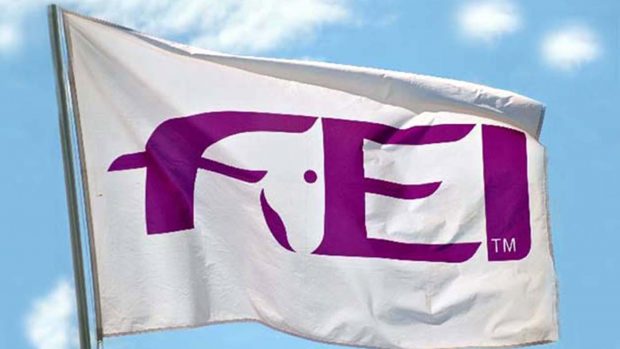Two endurance horses tested positive for a controlled medication substance at the World Equestrian Games (WEG) at Tryon, the FEI has announced.
Mora Inocente, a 12-year-old grey mare ridden by Pablo De Los Heros for Argentina, tested positive for corticosteroid dexamethasone (which is typically used to treat many inflammatory and auto-immune conditions) while El Pangue Ciromagnum, a 12-year-old grey gelding ridden by Raimundo Undurraga Mujica for Chile, tested positive for corticosteroid triamcinolone acetonide (an anti-inflammatory agent, typically used in the treatment of orthopaedic disease) in samples taken on 11 September. A controlled substance is one that can be legally used to treat horses, but must be clear from the horse’s system by the time of competition.
Controlled medication positives at WEG are not eligible for the FEI fast-track procedure so both cases will be heard by the FEI Tribunal. As these cases involve only a single controlled medication substance, there is no mandatory suspension of the person responsible.
Enhanced anti-doping measures were rolled out in advance of WEG as part of the FEI’s clean sport campaign, with national federations being offered two types of anti-doping test to ensure horses were clean – the pre-arrival testing and elective testing. The pre-arrival testing detects prohibited substances with no limit to the number of substances tested for while elective testing is for controlled medications only and is limited to four substances.
FEI secretary general Sabrina Ibáñez said: “While of course we cannot overlook the two controlled medication positives, overall the outcome is evidence that the awareness campaign conducted prior to Tryon, the opportunity for our national federations to test their horses before departure and, on the human anti-doping side, our excellent cooperation with the United States anti-doping agency all had a positive impact.

‘We made a ton of mistakes’ admits WEG boss
The boss of Tryon International Equestrian Center has praised his team’s efforts in helping towards ‘some of the best sport

WEG competition cancelled due to extreme weather
High humidity after heavy rain forced cancellation of the competition today

Subscribe to Horse & Hound magazine today – and enjoy unlimited website access all year round
“These two positives show that our testing programme works, but even though these are not doping substances, athletes should be aware that treatments from the controlled medications list must have been cleared from the horse’s system by the time of competition. It is clear that we need to work even harder to get the message across that clean sport and a level playing field are non-negotiable.”
Of the 163 horses and 92 human samples tested at WEG, there were no doping positives for banned substances.
“Clean sport is an absolute must for the FEI and we are very encouraged by the absence of any positives for banned substances and that all human tests came back negative from last month’s Games,” said Ms Ibáñez.
For all the latest news analysis, competition reports, interviews, features and much more, don’t miss Horse & Hound magazine, on sale every Thursday.





